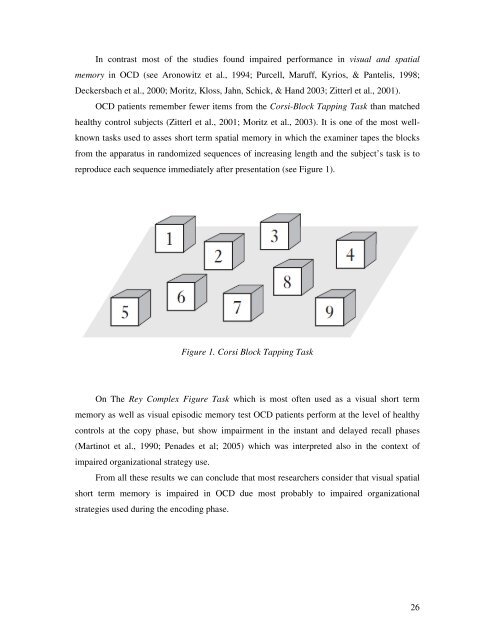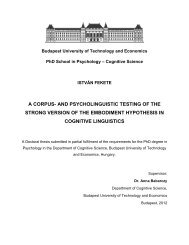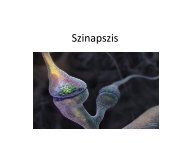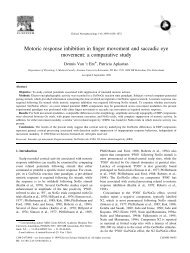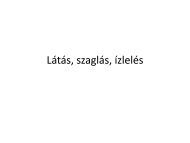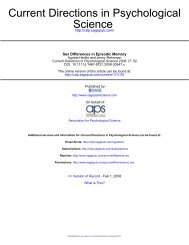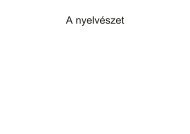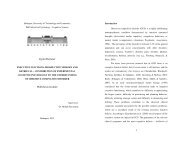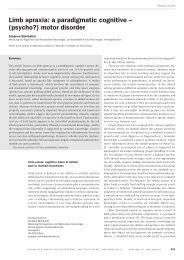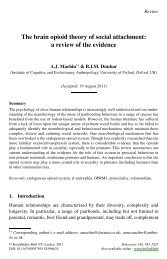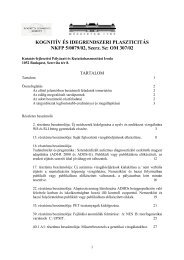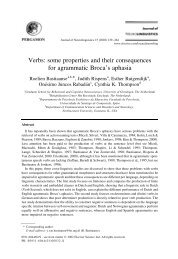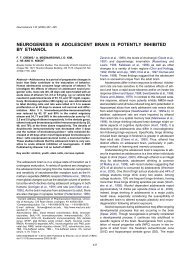Gyula Demeter
Gyula Demeter
Gyula Demeter
You also want an ePaper? Increase the reach of your titles
YUMPU automatically turns print PDFs into web optimized ePapers that Google loves.
In contrast most of the studies found impaired performance in visual and spatial<br />
memory in OCD (see Aronowitz et al., 1994; Purcell, Maruff, Kyrios, & Pantelis, 1998;<br />
Deckersbach et al., 2000; Moritz, Kloss, Jahn, Schick, & Hand 2003; Zitterl et al., 2001).<br />
OCD patients remember fewer items from the Corsi-Block Tapping Task than matched<br />
healthy control subjects (Zitterl et al., 2001; Moritz et al., 2003). It is one of the most well-<br />
known tasks used to asses short term spatial memory in which the examiner tapes the blocks<br />
from the apparatus in randomized sequences of increasing length and the subject’s task is to<br />
reproduce each sequence immediately after presentation (see Figure 1).<br />
Figure 1. Corsi Block Tapping Task<br />
On The Rey Complex Figure Task which is most often used as a visual short term<br />
memory as well as visual episodic memory test OCD patients perform at the level of healthy<br />
controls at the copy phase, but show impairment in the instant and delayed recall phases<br />
(Martinot et al., 1990; Penades et al; 2005) which was interpreted also in the context of<br />
impaired organizational strategy use.<br />
From all these results we can conclude that most researchers consider that visual spatial<br />
short term memory is impaired in OCD due most probably to impaired organizational<br />
strategies used during the encoding phase.<br />
26


